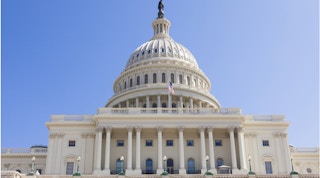Cookies in use
Anti-Equality Lawmakers Begin New Congress With Move to Target Kids in Sports
by Brandon Wolf •

Instead of focusing on the priorities of American families like the cost of living and health care, U.S. House advances bill that would prohibit transgender youth from participating on school sports teams as one of its first actions
Similar state legislation has led to the harassment and humiliation of young girls, regardless of whether they identify as trans
WASHINGTON – In a deeply partisan vote, the House passed a bill today that would prohibit transgender students from participating on school sports teams aligning with their gender identity. While this legislation targets transgender youth specifically, these blanket bans have negative impacts on all girls. Just five days after Florida Governor Ron DeSantis signed an anti-transgender sports ban in 2021, a cisgender girl faced brutal harassment from the sidelines at a lacrosse game simply because she had short hair. In Utah in, a state school board member ignited a deluge of hateful comments when she falsely implied that a young girl on the school basketball team was transgender.
“We all want sports to be fair, students to be safe, and young people to have the opportunity to participate alongside their peers,” said Human Rights Campaign President Kelley Robinson. “But this kind of blanket ban deprives kids of those things. This bill would expose young people to harassment and discrimination, emboldening people to question the gender of kids who don’t fit a narrow view of how they’re supposed to dress or look. It could even expose children to invasive, inappropriate questions and examinations. Participating in sports is about learning the values of teamwork, dedication, and perseverance. And for so many students, sports are about finding somewhere to belong. We should want that for all kids – not partisan policies that make life harder for them.”
For many young people, participation in sports is a key component to their overall health and wellbeing. Participating in sports is linked to lower rates of anxiety and depression, increased cognitive performance, and fewer instances of substance abuse. Youth sports participation is also associated with improved bone health and reduced risk of cancer and diabetes. These benefits, alongside crucial lessons learned through sports participation like teamwork, dedication, and resilience, are especially important for transgender youth, who face higher risk of anxiety, depression, and bullying than their peers.
The facts on the ground demonstrate that this type of legislation is not meant to solve any pressing problem, but is simply a tool to politicize children for political gain. In a December Senate hearing, NCAA President Charlie Baker shared that there are fewer than 10 transgender athletes currently participating in college sports. In 2022, Utah Governor Spencer Cox vetoed a ban on transgender youth participating in sports, a move later overridden by the legislature. In his veto statement Governor Cox, said “rarely has so much fear and anger been directed at so few. I don’t understand what they are going through or why they feel the way they do. But I want them to live.”
Sports associations, whose role it is to ensure safe, equitable access to sports, exist in every state and at every level of competition. Many have existing policies with regards to transgender youth participation.
Blanket bans like these also come over the objections of advocates for women’s sports like Billie Jean King, Megan Rapinoe, Dawn Staley, the Women’s Sports Foundation, and the National Women’s Law Center.
The anti-transgender sports ban now heads to the Senate.
The Human Rights Campaign is America’s largest civil rights organization working to achieve equality for lesbian, gay, bisexual, transgender and queer people. HRC envisions a world where LGBTQ+ people are embraced as full members of society at home, at work and in every community.
###
Contact Us
To make a general inquiry, please visit our contact page. Members of the media can reach our press office at: (202) 572-8968 or email press@hrc.org.
- Topics:
- Federal Advocacy
- Sports
Love conquers hate.
Image: